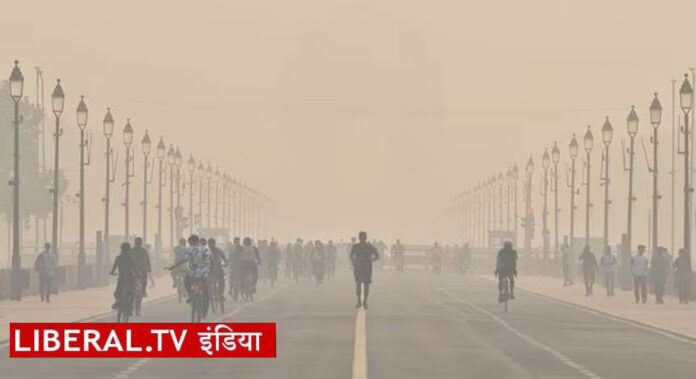For the second consecutive day, a dense fog has enveloped northern India, causing temperatures to drop and disrupting train and flight operations across several states.
Delhi’s airport issued an advisory informing passengers that operations have been affected by the fog. Travelers are advised to check with airlines for updates. This morning, more than 170 flights at Delhi Airport were delayed, and 38 were cancelled. Airports in Srinagar, Chandigarh, Agra, Lucknow, Amritsar, Hindon, and Gwalior reported zero visibility.
Additionally, over 50 trains arriving in Delhi have been delayed. The 22436 New Delhi Vande Bharat Express is running more than four hours behind schedule, while the Varanasi Vande Bharat Express is delayed by 14 hours. The New Delhi Vande Bharat Express is eight hours and 17 minutes late, and the Anand Vihar Terminal Superfast Express is delayed by over seven hours.
Yesterday, more than 200 flights were delayed as visibility at Indira Gandhi International Airport dropped to zero. The India Meteorological Department has predicted dense to very dense fog in the national capital, Uttar Pradesh, and isolated areas of Punjab and Haryana. The IMD confirmed that current visibility at IGI Airport is zero.
IndiGo reported significantly reduced visibility due to fog, which is affecting flight schedules, while Air India also noted that poor visibility in Delhi and parts of northern India is impacting operations. SpiceJet advised passengers to check flight statuses, warning that departures and arrivals may be disrupted due to the weather conditions.
Delhi is expected to experience fog until January 8, with light rain predicted for January 6. As of Saturday morning, the temperature in the city was 10 degrees Celsius.
According to the India Meteorological Department, a “cold day” is defined as a day when the minimum temperature is below 10 degrees Celsius, and the maximum temperature is at least 4.5 degrees lower than the usual normal for that time period.
The Air Quality Index (AQI) in Delhi has exceeded 240, categorized as “Very Unhealthy,” as reported by the Central Pollution Control Board (CPCB).



